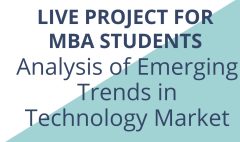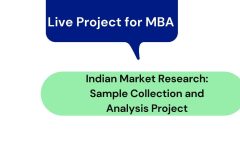From Concept to Consumer
From Concept to Consumer
In the intricate world of manufacturing, a product’s journey from conception to the consumer involves much more than simple production — it requires a strategic orchestration known as Product Lifecycle Management (PLM). For MBA graduates, this area offers a dynamic playground to employ their diverse skills, from analytical thinking and project management to strategic implementation and market analysis.
Understanding Product Lifecycle Management
PLM refers to the process of managing the entire lifecycle of a product from inception, through engineering design and manufacturing, to service and disposal. But why is PLM critical, and what makes MBA graduates suitable for mastering it?
- Strategic Planning and Implementation:
- MBA graduates understand the importance of long-term strategic planning. In PLM, this translates to forecasting product trends, planning for various lifecycle stages, and implementing strategies for efficient transitions.
- Cross-functional Coordination:
- Managing a product’s lifecycle requires coordination across multiple departments. Your MBA has equipped you with the skills to communicate effectively, understand different business functions, and lead cross-functional teams.
- Market Analysis and Consumer Insight:
- Products must meet market demands to be successful. Your training in market analysis and consumer behavior analysis is crucial for designing products that resonate with target audiences and adjusting strategies as market conditions change.
- Cost Management and Efficiency:
- One of the critical components of PLM is managing costs. Your financial acumen will be instrumental in budgeting, cost analysis, and finding ways to increase efficiency while reducing expenses.
- Innovation and Continuous Improvement:
- The market is dynamic, and products must evolve. Your innovative mindset and commitment to continuous improvement will drive product enhancements and help maintain competitiveness.
- Sustainability and End-of-life Strategy:
- Modern consumers are increasingly eco-conscious. Your role involves planning for sustainable production processes and the product’s end-of-life, ensuring it leaves the smallest possible environmental footprint.
Navigating the Stages of the Product Life Cycle with an MBA
How does an MBA prepare you to handle the different stages of the product life cycle?
- Introduction:
- This stage involves bringing a new product to market, a process that benefits immensely from your skills in strategic marketing, consumer research, and competitive analysis.
- Growth:
- As the product gains market acceptance, your focus will shift to scaling production, managing quality, and optimizing supply chains to meet increasing demand.
- Maturity:
- Here, demand stabilizes. Your skills in business analytics and strategic planning will help in implementing cost reduction strategies, exploring new markets, or introducing product modifications to maintain market position.
- Decline:
- As sales decrease, your strategic decision-making skills come to the fore, deciding whether to discontinue the product, find new uses, or innovate to regain market share.
Enhancing Your PLM Skills Post-MBA
- Certifications: Consider additional certifications specific to PLM. Certifications showcase your commitment to specialization and keep you updated on industry standards.
- Networking: Engage with industry professionals. Attend seminars, join online discussions, and participate in webinars. Networking can provide you with valuable insights and keep you abreast of the latest trends.
- Real-world Experience: There’s no teacher-like experience. If you’re new to manufacturing, consider internships or part-time positions related to PLM. This hands-on experience will be invaluable.
- Continued Learning: The business world is dynamic. Enroll in online courses, attend workshops, and read relevant publications to stay informed.
Conclusion
The journey of a product from a mere concept to a consumer staple is complex, multifaceted, and fraught with challenges. However, for an MBA graduate, these challenges represent opportunities to innovate, strategize, and lead. With your diverse skill set, you’re not just a participant in this journey — you’re the guide, the strategist, and the innovator. You are essential in steering the product through its lifecycle stages, ensuring it not only reaches the consumer but also leaves a lasting impact.








